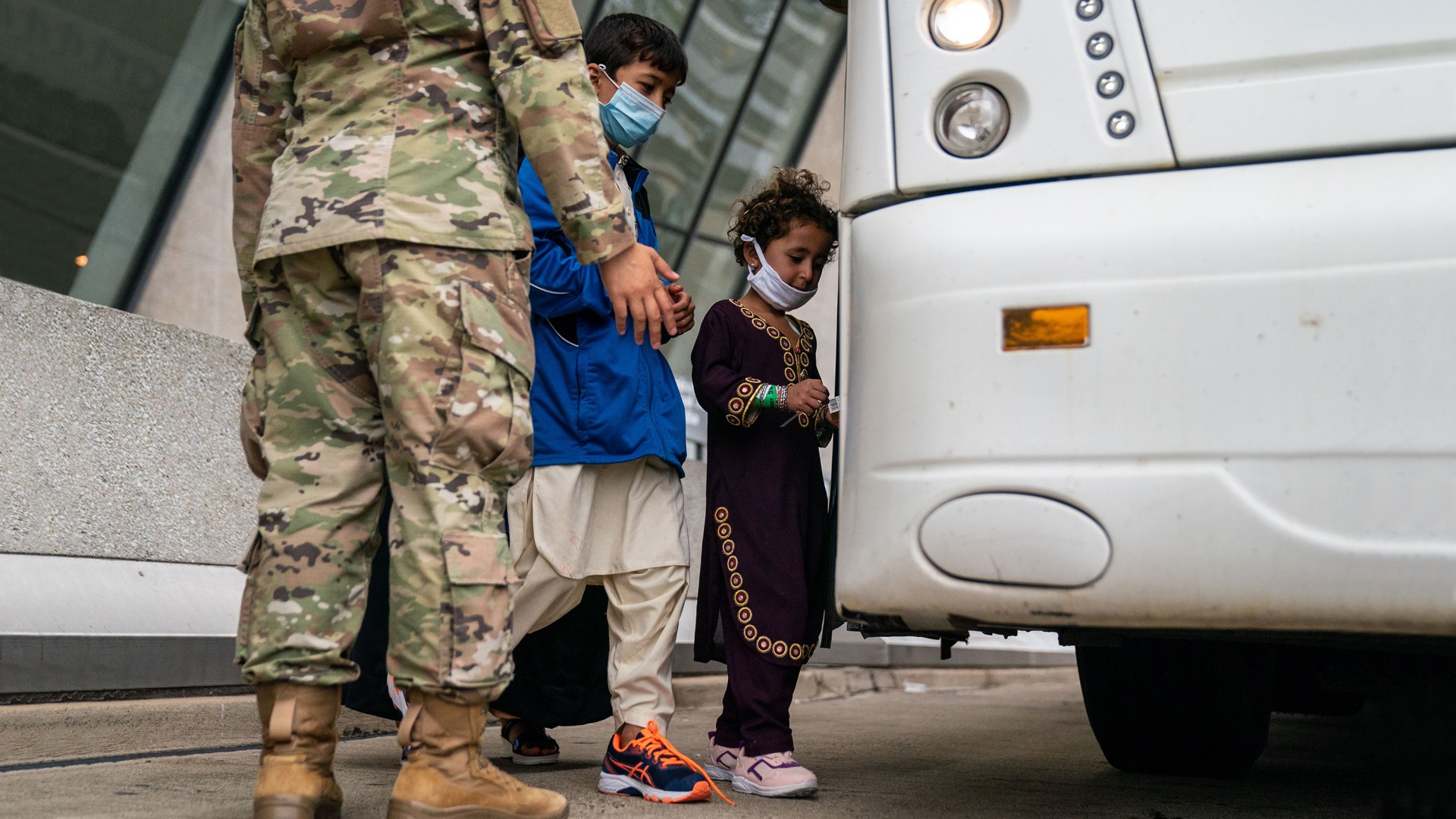As we can see from the gut-wrenching images in Afghanistan, most of those wishing to flee the Taliban will never be able to escape, even many who faithfully helped the United States in the twenty-year war there.
Some, though, will be able to make it to other countries—including the United States—to seek shelter and to start a new life. As evangelical Christians, we should resolve, even before our new neighbors arrive, to ignore those who would ask us to fear these refugees.
Historically, those wishing to ostracize refugees take a number of different tactics. They sometimes speak of them in language of “uncleanness”—using metaphors such as rodents or insects—or they might suggest that the asylum seekers are themselves vectors of disease. They sometimes, though less often, speak as bluntly as some are now of refugees as an “invasion” of those who are coming to “replace us” (with “us” almost always referring to white and nominally Christian Americans). But perhaps most often, they speak of refugees as a threat.
Just as we saw with Syrian refugees and Kurdish refugees in years past, we will soon hear the insistent cries of those arguing that Afghan refugees are terrorists, or at least that they might be, since they are “unvetted” and we know nothing about them. These claims aren’t true.
As Elizabeth Neumann—a former high-ranking Trump Administration national security official—demonstrates, even if a terrorist wanted to play the long game of twenty years of pretending to be a pro-Western, anti-Taliban figure, the vetting process for all of these refugees is intense and rigorous, using extensive biometric and biographic checks. And as Neumann also points out, the sort of rhetoric used against such refugees almost always is accompanied by a rise in crimes or violence against such people.
The refugees moving into your community will not be there to terrorize you or to “replace” you. They will instead be looking for the chance to start a new life—without their sons murdered and their daughters raped by bloodthirsty despots. In that way, they will be like countless others who have found refuge here in the United States. You can see many of them at the Fourth of July parade in your town; they are often the ones waving the biggest American flags and weeping with patriotic joy.
Some of these refugees are your brothers and sisters in Christ. Some will be your future brothers and sisters in Christ. Whether they are or not, though, every one of them reflects back to us the picture of a God who made humanity in his image and loves each one of us.
The fear of refugees is meant to keep us in a state of emergency that sees everyone and everything not immediately familiar to us as a threat. That keeps viewers tuning in to television shows, callers calling in to radio shows, donors sending in dollars to politicians and interest groups. This sort of limbic-system override can cause even Christians who know their Bibles to forget the most minimal commands Jesus has given us to love and care for the vulnerable.
As Martin Luther King Jr. wrote in 1963, the priest and the Levite in Jesus’ parable, who avoided the beaten man on the side of the Jericho Road, were probably not feeling cruel or heartless. They were probably afraid—and understandably so. The Road to Jericho was a dangerous outpost for violent criminals. Those hurrying by might well have assumed that they could be beaten next.
“Perhaps the robbers were still nearby,” King wrote. “Or maybe the wounded man on the ground was a faker, who wished to draw passing travelers to his side for quick and easy seizure. I imagine that the first question the priest and the Levite asked was: ‘If I stop to help this man, what will happen to me?’”
There are times when we are called to a genuinely dangerous love of our neighbors. We see that in the Samaritan’s care for the wounded man on Jericho Road—or the early church overcoming its fear that the church-persecuting terrorist named Saul of Tarsus might be pretending to be a disciple to do harm to them from within (Acts 9:26).
In the case of Afghan refugees, we do not face anything even approaching that level of danger to ourselves.
Fear can sometimes drown out even our deepest convictions. We start to act in self-protecting ways that make us indiscriminately lash out at even imaginary threats. But the Bible tells us that perfect love casts out fear (1 John 4:18). That should remind us that when we find ourselves asking “Who is my neighbor?” we are asking the wrong question.
Russell Moore is a public theologian and the director of the Public Theology Project at Christianity Today.









